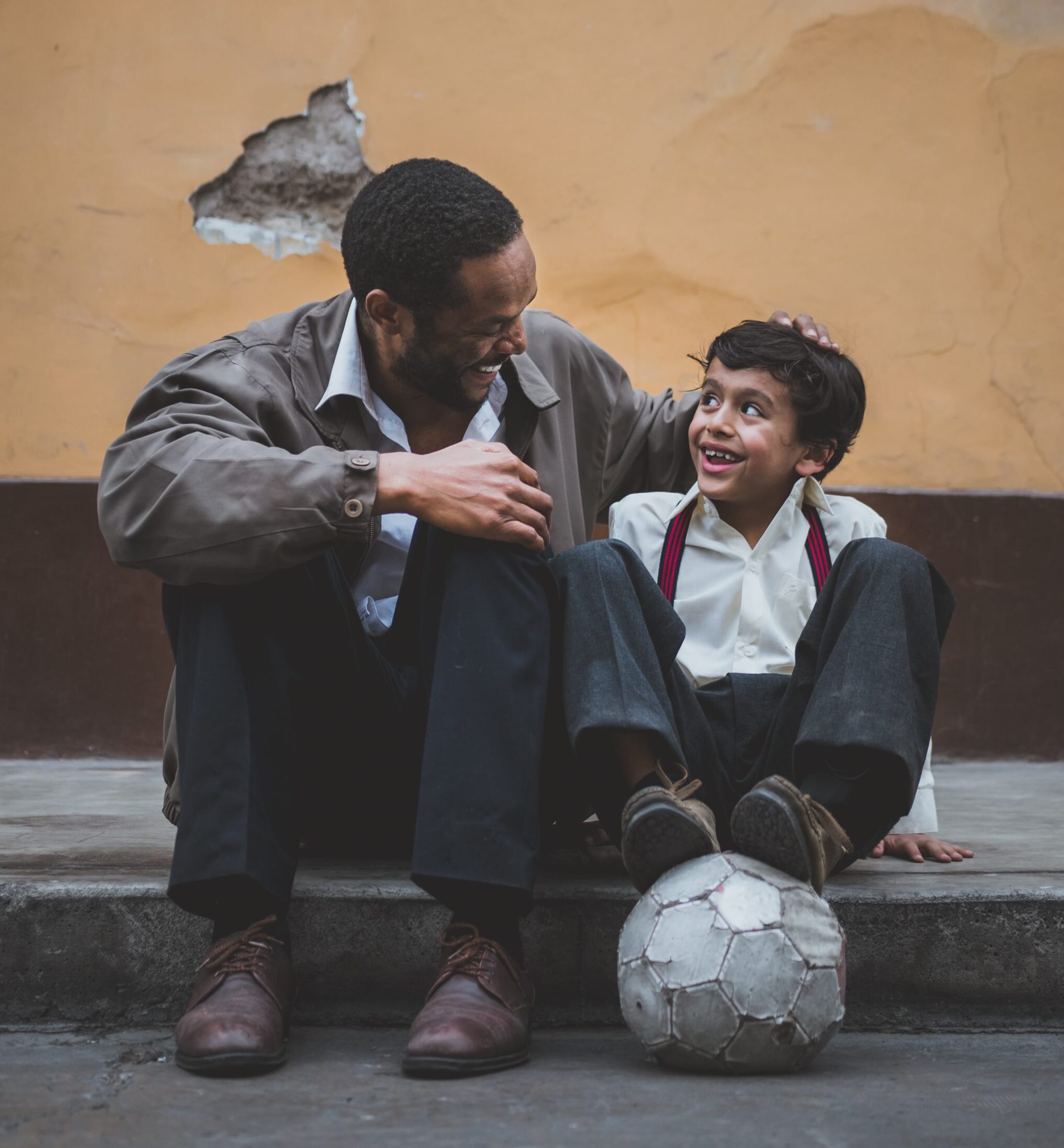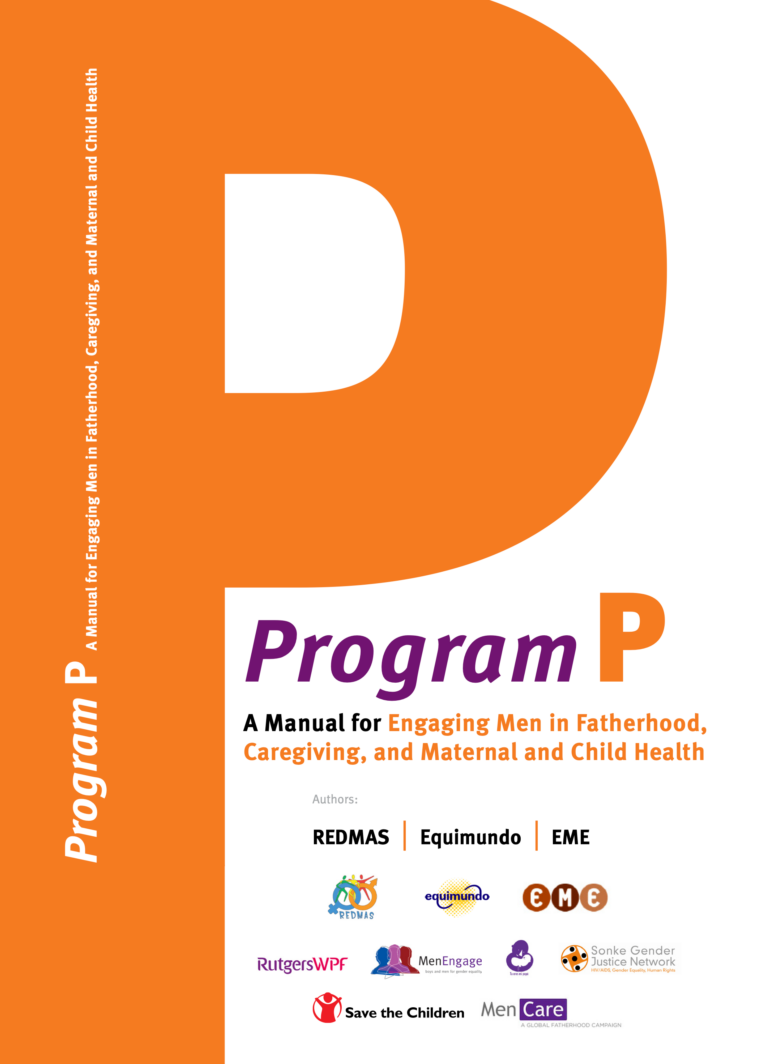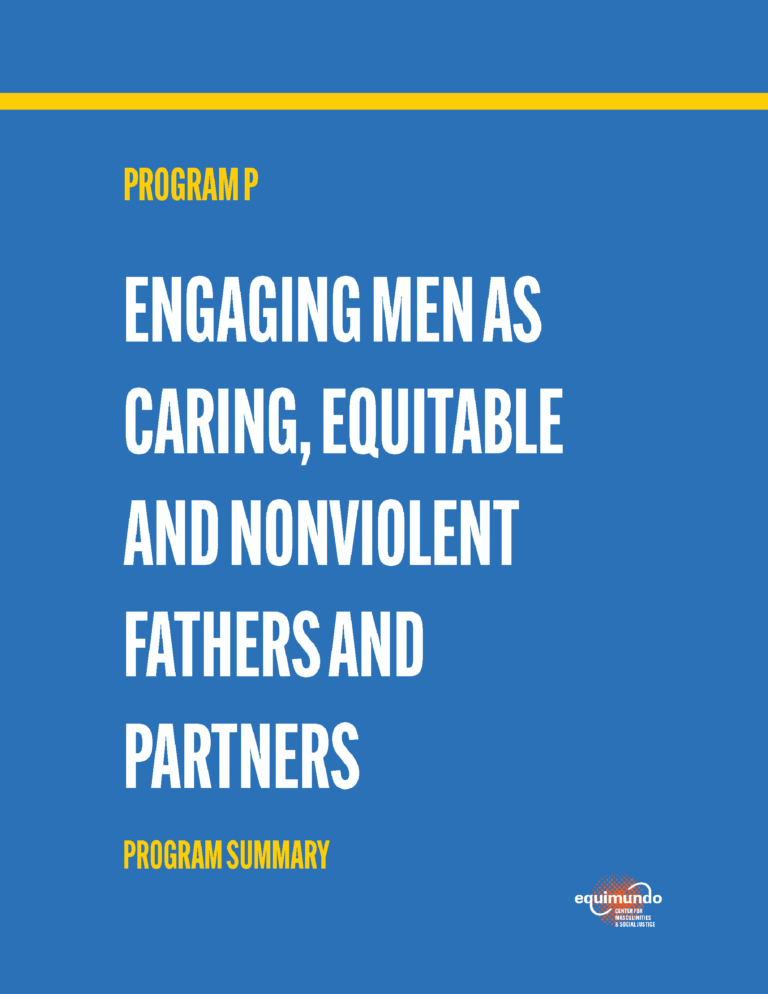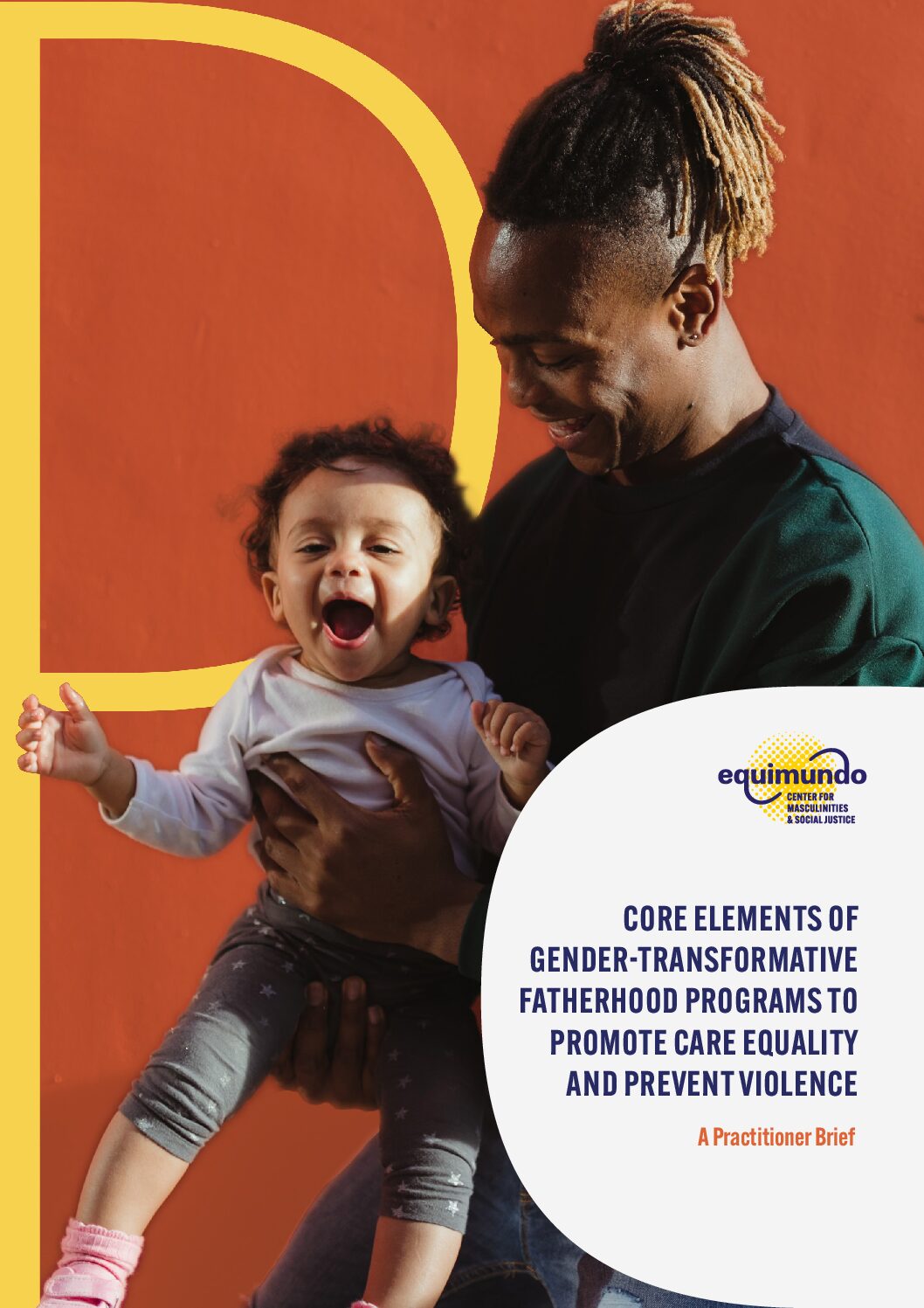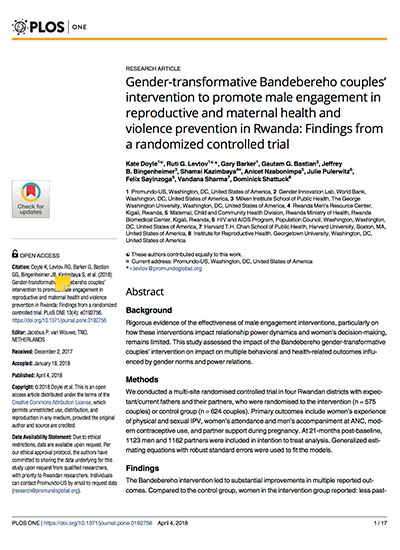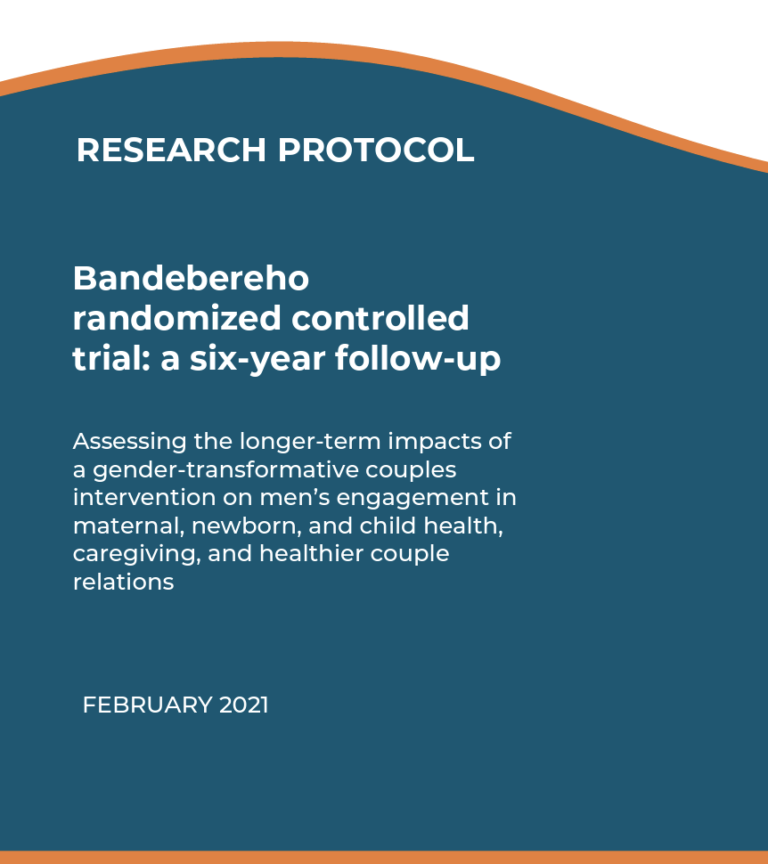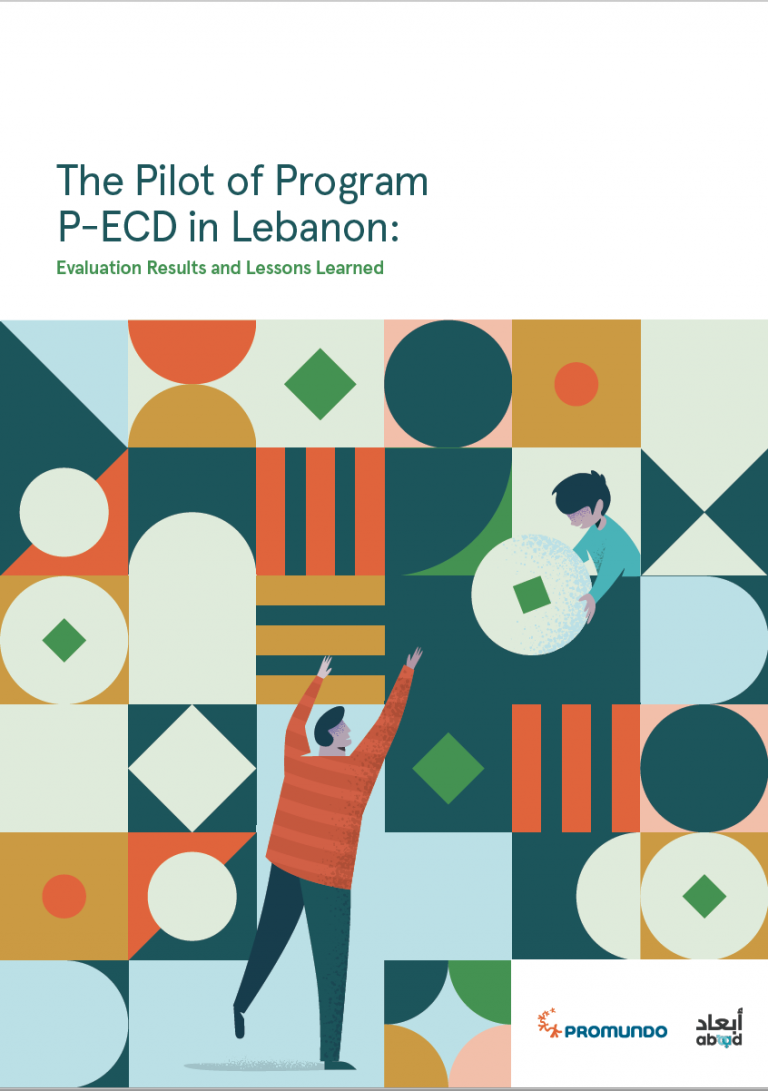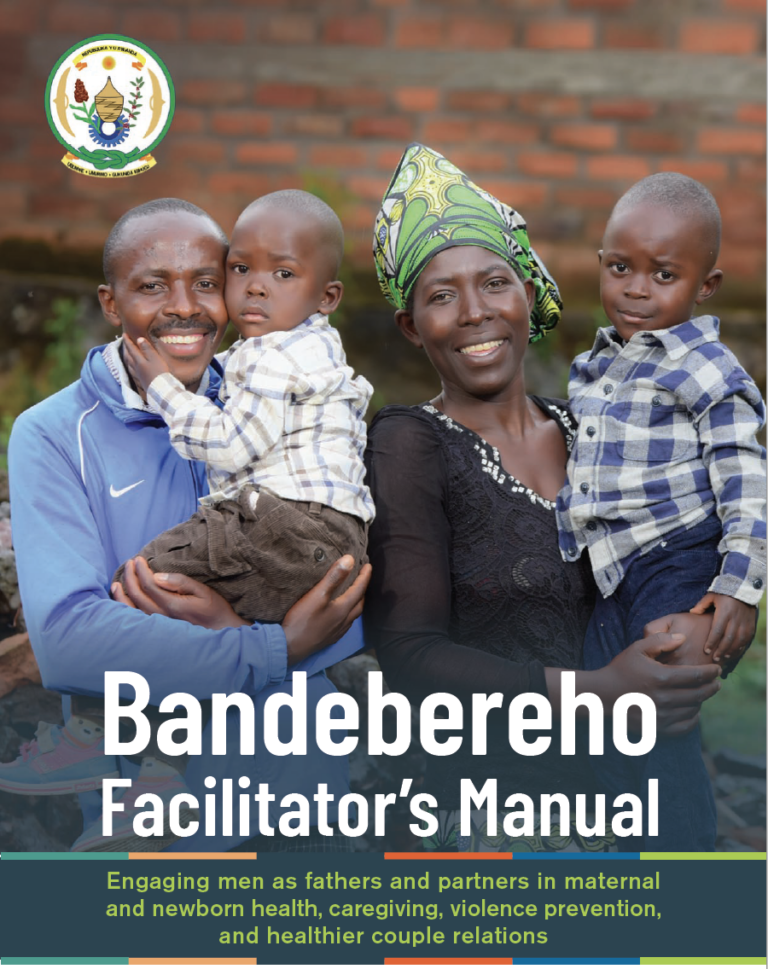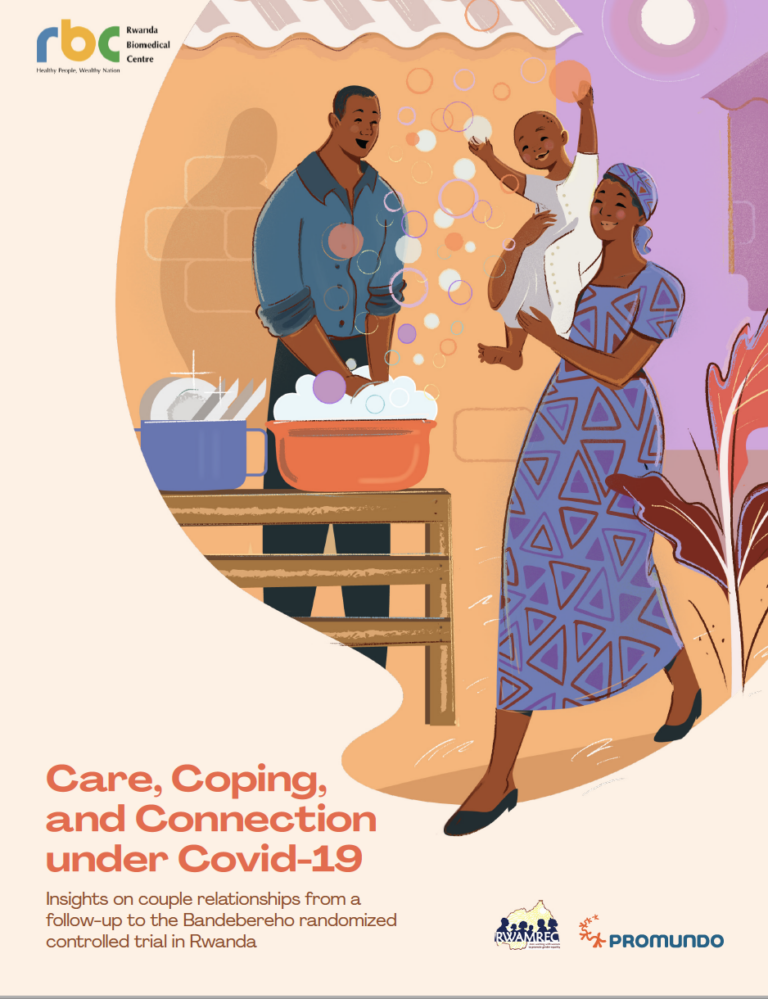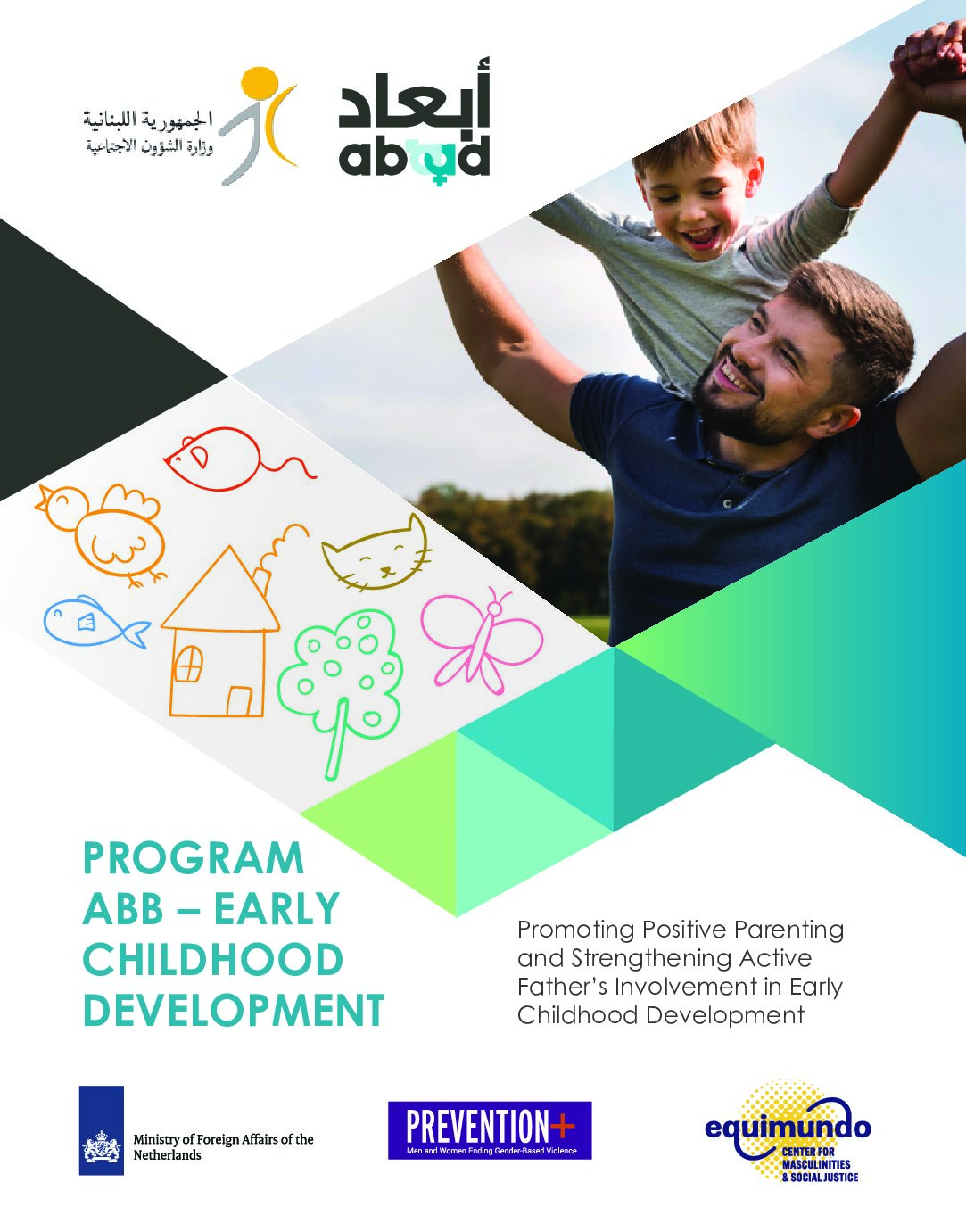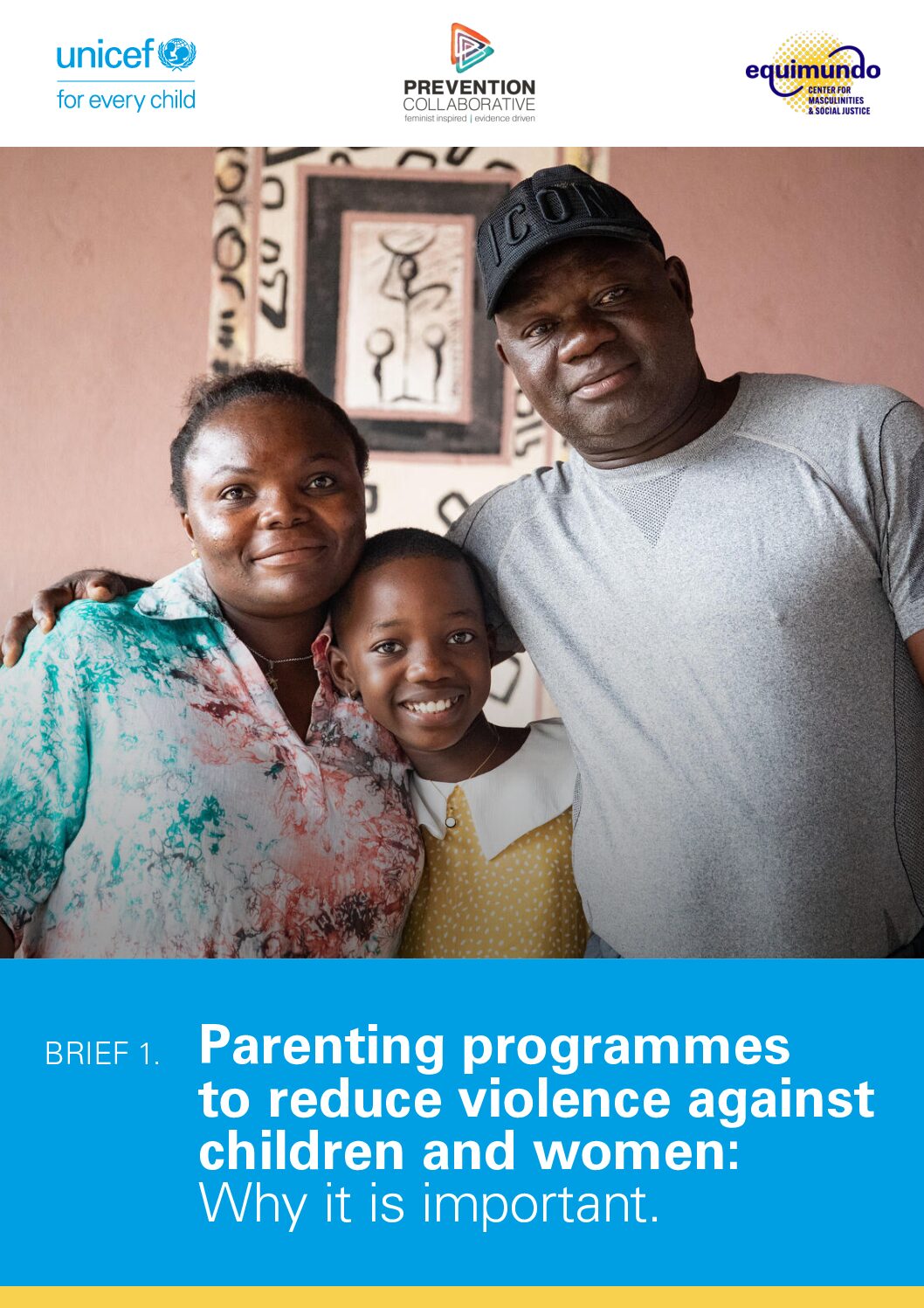Program P provides concrete strategies and activities, based on evidence and a decade of adaptations in different settings, to engage men with their female partners in caring, equitable and non-violent fatherhood from their partner’s pregnancies through their children’s early years.
Working with men as fathers is a key entry point to discussing sensitive subjects around traditional gender norms, and the way in which these norms negatively impact communities. Through discussion guides, role plays, and hands-on activities (such as learning how to change diapers), men and their partners are encouraged to discuss and challenge traditional masculine and inequitable gender norms and to practice more positive social behaviors in their families and communities.
Background
Program P is named after padre and pai, the words for father in Spanish and Portuguese. Part of the MenCare Campaign, Program P is a direct and targeted response to the need for concrete strategies to engage men in active fatherhood from prenatal care through delivery, childbirth, and their children’s early years. The Program P Toolkit includes a step-by-step guide for creating and launching community campaigns to promote positive, involved caregiving.
Developed in partnership with Instituto Promundo, Puntos de Encuentro in Nicaragua, CulturaSalud in Chile, and the Brazilian Ministry of Health, the program has three components: (1) offering information and tools for health care providers, (2) providing structured methodologies to facilitate group based activities for fathers and couples, and (3) providing guidance for designing community campaigns. By targeting men through health, early childhood, social protection, workplace or other community spaces, Program P engages fathers and their partners at a critical moment – during their partner’s pregnancies or their children’s early years – when they are likely to be more open to adopting new caregiving and equitable behaviors.
Adaptations
Program P has been adapted and/or implemented with partners in at least 18 countries around the world, including in: Nicaragua, Chile, Brazil, Indonesia, Rwanda, South Africa, Sri Lanka, Lebanon, Bolivia, Russia, Guatemala, India, Armenia, Haiti, Ghana, Nigeria, Bangladesh, and Mozambique. In certain contexts, such as in India and Armenia, the methodology has been adapted to address specific issues: child marriage and prenatal sex selection, respectively. In Bangladesh, the curriculum focuses on addressing violence against women and violence against children.
Program P – Early Childhood Development (Program P–ECD)
Program P–ECD is an adaptation of Program P designed to engage men and their partners as non-violent and nurturing parents for children ages 0-3 through parenting group education.
Evidence shows that supportive caregivers – including fathers – that provide responsive care to children’s needs during early childhood are critical for healthy comprehensive development, improve the quality of family relationships, prevent violence, and can mitigate and even reverse the damaging effects of a stress response to conflict.
Program P-ECD is a gender-transformative, evidence-based program which seeks to challenge and transform restrictive and harmful gender norms that often influence parental interaction with children. Program P-ECD was first developed and piloted in Lebanon, in partnership with ABAAD, Women and Girls Safe Spaces, and the MenEngage Alliance Lebanon Network. The pilot found a significant decline in the use of harsh physical discipline with children, increases in men’s active participation in both domestic and caregiving work, and improved communication within the couple about their own and their partner’s concerns and feelings.
Bandebereho – Rwanda
Developed by RWAMREC and Equimundo, Bandebereho (meaning role model in Kinyarwanda) is a couples’ intervention implemented through the health system in Rwanda. Bandebereho, inspired by Program P, was developed as part of the MenCare+ project and evaluated through a randomized controlled trial. The study demonstrated the impact of the intervention on a range of health and gender-related outcomes, including intimate partner violence, contraceptive use, women’s antenatal care attendance and men’s accompaniment, household decision-making, and violence against children.
Paternar – Colombia
Paternar is an adaptation of Program P in Colombia designed to involve men (and their partners) as caring, equitable, and responsible fathers of children aged 0-5. Between 2020 and 2022, Equimundo and Fundación Centro Internacional de Educación y Desarrollo Humano (CINDE) adapted Program P with a focus on early child development for the Colombian context, which was first launched in Bogotá with 180 migrant fathers and mothers from Venezuela and victims of the Colombian armed conflict, and reached 228 children in early childhood and 101 children over 5. Paternar is now implemented through a hybrid modality (digital and face-to-face). Learn more about Paternar here.
Evaluations
Global
In order to understand Program P’s success, Equimundo conducted a mixed-methods review of Program P adaptations in more than a dozen countries. This review seeks to consolidate learning from existing evaluations of Program P adaptations and the wealth of practice-based knowledge from program adapters and implementers. It identifies the core components or essential elements that guide effective, high-quality Program P adaptation and implementation, as well as common challenges and constraints, that can support practitioners interested in adapting, implementing, and evaluating gender-transformative parenting programs in other settings.
Read the review of core components of Program P adaptations here.
Bandebereho – Rwanda
Results from multiple randomized controlled trial (RCT) of the Program P adaptation in Rwanda, Bandebereho, reveal the powerful impacts of this targeted, gender-transformative programm on health and violence outcomes. Results show that almost two years after participating in the program, men are nearly half as likely to use violence against their female partners and spend almost one hour more per day doing household chores. Six years after the program, our results show a sustained reduction in family violence including violence against women and children, and couples report improved maternal health-seeking, father engagement, and division of household labour and decision-making.
Further reading on the effects of the Bandebereho intervention in Rwanda:
- Optimizing the Construction of Outcome Measures for Impact Evaluations of Intimate Partner Violence Prevention Interventions
- Long-term impacts of the Bandebereho program on violence against women and children, maternal health-seeking, and couple relations in Rwanda
- Bandebereho Randomized Control Trial Six Year Follow Up: Research Protocol
Nicaragua
Qualitative results from Program P’s implementation have also shown positive changes in the lives of men and their families. Young fathers in Nicaragua, one of the locations where Program P was tested, reported improved relationships with their children and partners, as well as greater participation in household work and childcare. In addition, in a partnership between World Education and Equimundo, men in Sri Lanka learned to manage difficult emotions and reported a decrease in substance abuse among both themselves and their partners. Furthermore, many of the men and staff who were involved have continued to spread the program’s messages throughout their communities and have recruited other men to participate.
Bolivia
Another qualitative evaluation of Program P’s implementation in El Alto, Bolivia found that the program generated changes in gendered attitudes and roles, including men spending more time on caregiving and domestic duties, women having greater decision-making ability in the home, and less tolerance by men and women of violent discipline of children. Yet many men continued to hold final decision-making power in their households and use harsh physical punishment to discipline children. This study, financed by the Inter-American Development Bank, reflects the broader evidence that changing attitudes, behaviors and gender norms takes time and is not feasible in a few sessions. Moreover, this shows that program adaptation needs to not only be informed by a deep understanding of how the curriculum interacts with a particular context (in this case, an urban context amongst Indigenous families that face multiple forms of adversity), but in addition, it needs to be piloted to test its relevance, acceptability and feasibility in the particular setting, and revised accordingly, before conducting experimental evaluations.
Further reading: Lessons learned from implementing the parenting Program P in Bolivia to prevent family violence
